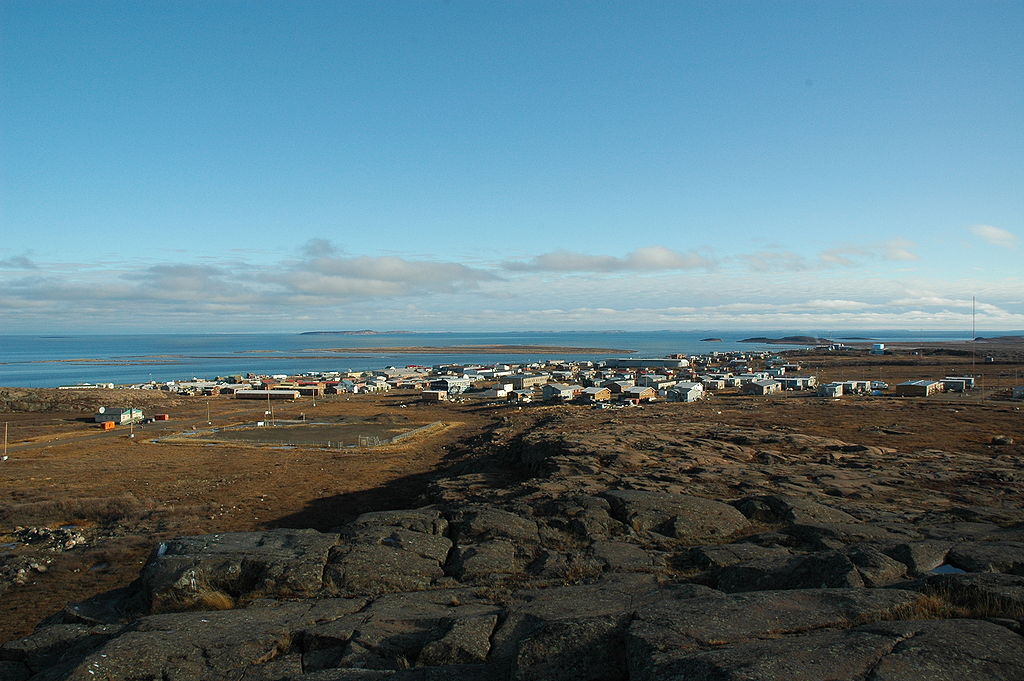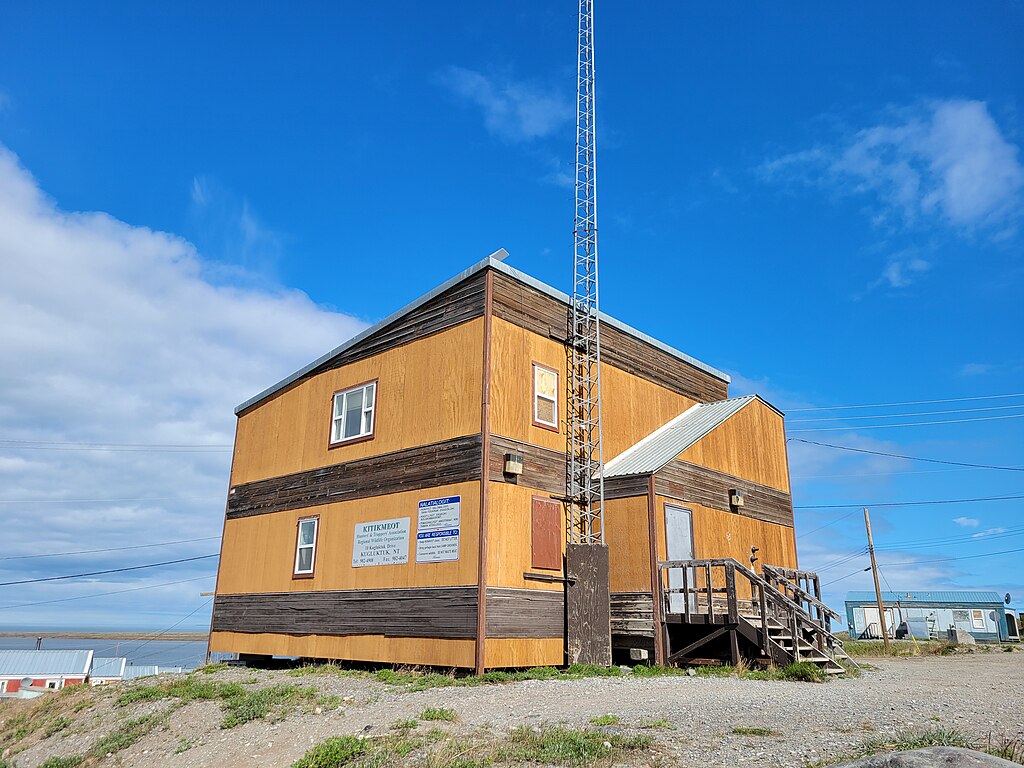Kugluktuk, Nunavut, incorporated as a hamlet in 1981, population 1,382 (2021 census), population 1,491 (2016 census). The Hamlet of Kugluktuk, formerly known as Coppermine, is situated west of the mouth of the Coppermine River on the mainland Arctic coast. The hamlet changed its name in 1996 to Kugluktuk, which means "place of rapids," referring to the rapids at Bloody Falls, 15 km upstream.
History and Settlement
Samuel Hearne, a colonial explorer and fur trader, reached the mouth of the river in 1771. He later witnessed a massacre of the Inuinnait (Copper Inuit) by his Chipewyan guides at Bloody Falls which he named in remembrance of the slaughter. The way of life for the Inuit living around this semi-permanent fishing and sealing camp changed in 1916, when a trading post was established at the site. As more services became available, the Inuit began to settle permanently.

Economy and Labour Force
Since the late 1970s, oil and natural gas exploration in the Beaufort Sea has provided some economic diversity to this community, where the residents still fish, hunt, trap, seal and do craftwork. Kugluktuk is further diversifying its economy into tourism by promoting its traditional lifestyle and the historical and archaeological sites near it.


 Share on Facebook
Share on Facebook Share on X
Share on X Share by Email
Share by Email Share on Google Classroom
Share on Google Classroom

